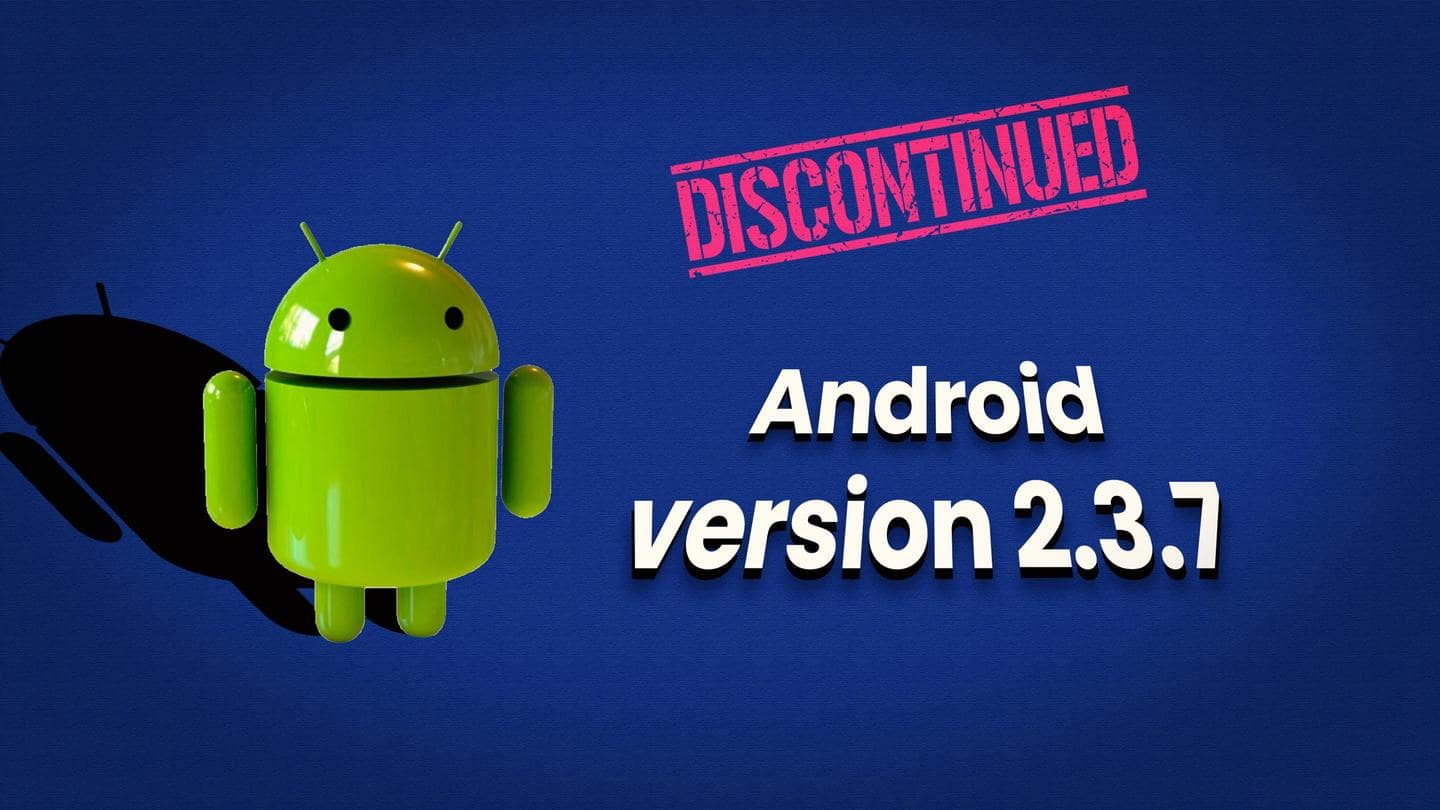
Google is discontinuing sign-in support on old Android devices
What's the story
If you have an ancient relic running on Android version 2.3.7 (final version of Gingerbread) or anything older than that, Google has decided that after September 27, you won't be allowed to sign in to your Google account on that device.
As always, the search giant has cited security reasons to justify the move.
Here are more details.
Explanation
Native in-app sign-in being discontinued, browser sign-in might still work
Explaining the change, Google said, "If you sign in to your device after September 27, you may get a username or password errors when you try to use Google products and services like Gmail, YouTube, and Maps."
Google added that you would still be able to use some Google services if you are logged in using your device's browser.
How old?
Android version 2.3.7 had debuted in 2011
For context, Android version 2.3.7 is almost 10 years old.
According to PhoneMore, 2.3.7 was first seen on the Samsung Galaxy S2 LTE. Other phones to feature this OS include Sony Xperia S, LG Optimus, and the Huawei Activa 4G.
Apart from 2.3.7, the development will impact devices running Android 1.0, 1.1 (unnamed), 1.5 Cupcake, 1.6 Donut, 2.0 Eclair, 2.2 Froyo, and 2.3 Gingerbread.
Impact
Previously, Google only limited access to OS updates, Play Services
Since these are pretty old operating systems, Google's decision would not impact many people.
However, this marks the rare instance where the search giant has defined a baseline below which basic functionality for older devices is being cut off.
In the interest of user security, Google has previously cut off access to operating system updates and Play Services features.
Rooting?
Setting up older devices after factory reset could become impossible
Google's change could mean that you won't be able to set up a device running Android version 2.3.7 after a factory reset.
Since older Android versions don't receive OTA updates anymore, we suggest that users root their devices to upgrade to a newer version of Android.
To modern smartphone users, this change won't make a difference.